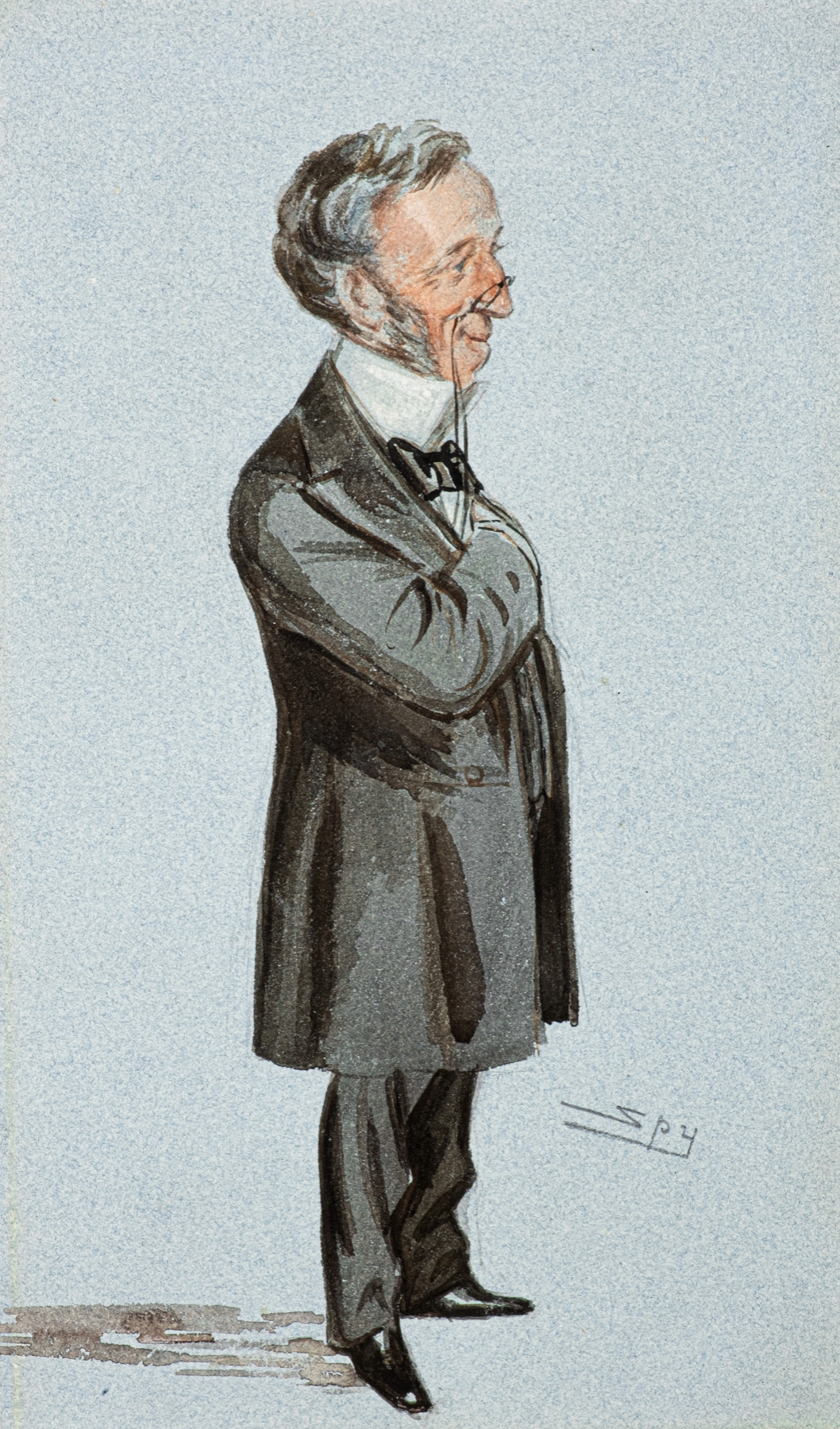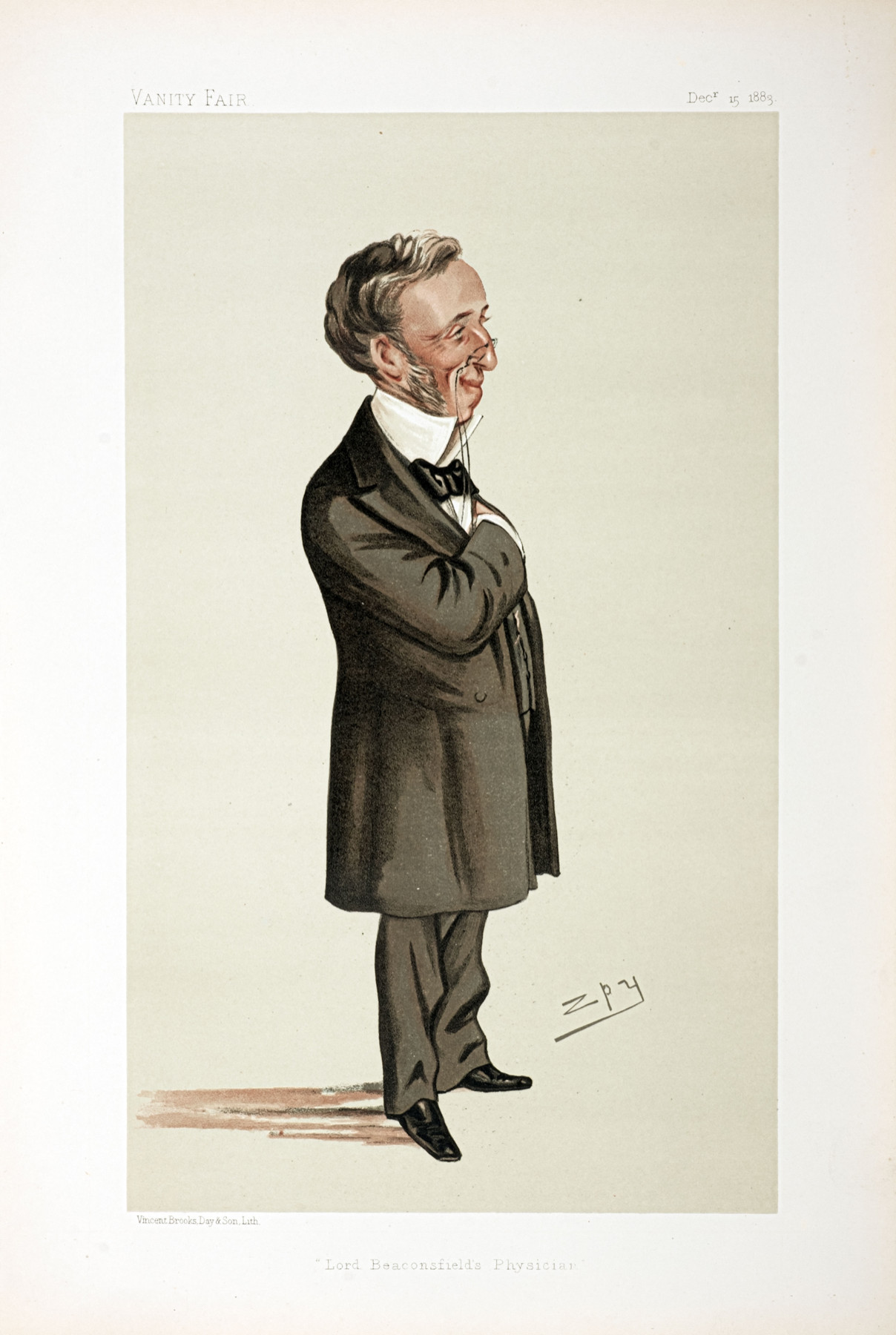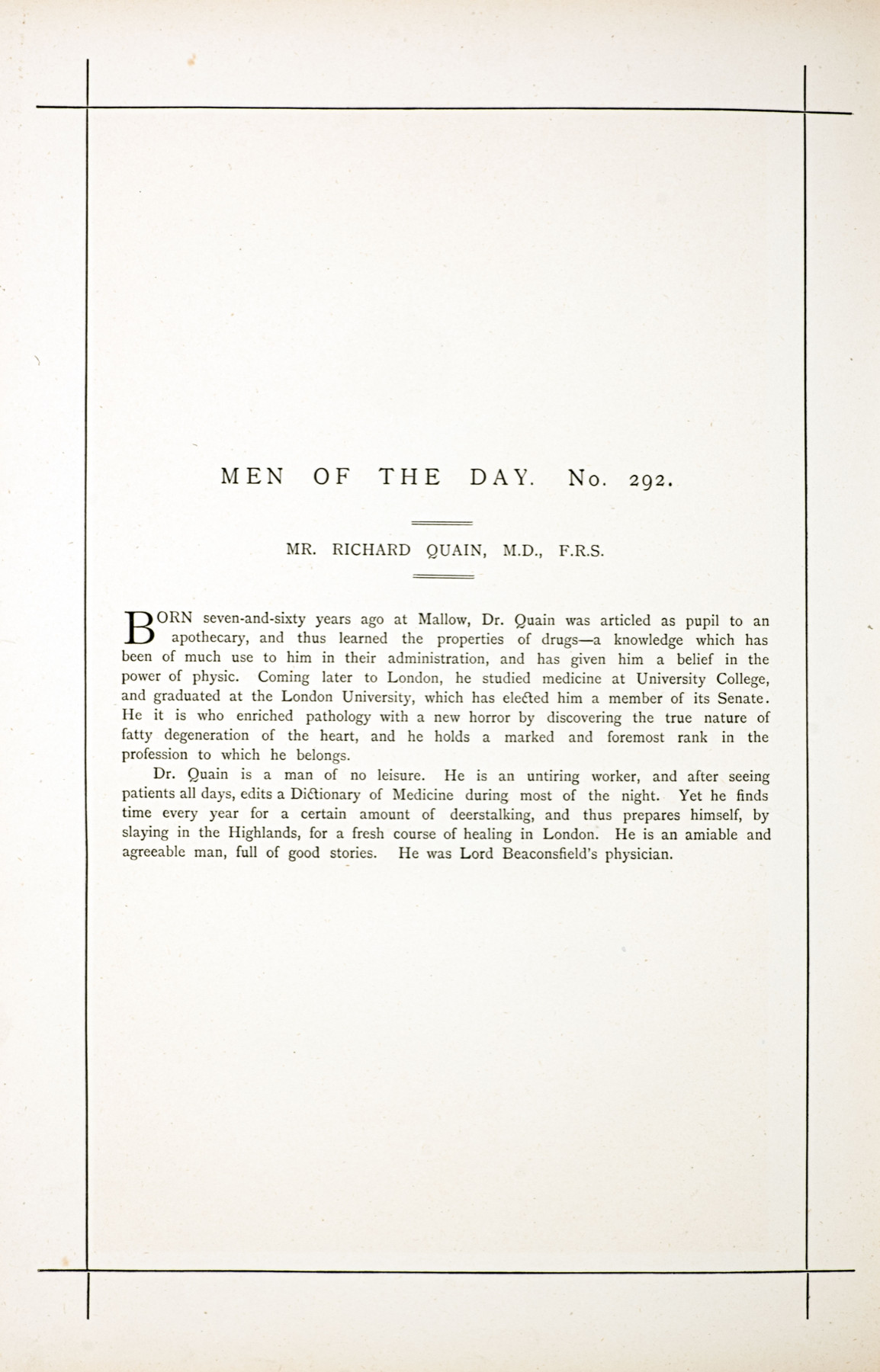


As a house surgeon at University College Hospital, Sir Richard Quain (1816-1898) developed a reputation as one of London’s leading physicians. From 1845 he was a leader writer for The Lancet and in 1846 was one of the founding members of the Pathological Society, becoming its president in 1869. He was assistant physician from 1848 to 1855, and physician from 1855 to 1875, at Brompton Hospital for Diseases of the Chest and was also consulting physician to the Royal Naval Hospital at Greenwich and the Royal Hospital for Consumption at Ventnor. From the 1850s, his reputation as a general physician on Harley Street earned him a number of high profile patients, including Benjamin Disraeli. In 1871 Quain was elected a fellow of the Royal Society and became vice-president of the Royal College of Physicians in 1889. The following year, he was appointed physician-extraordinary to Queen Victoria.
“Born seven-and-sixty years ago at Mallow, Dr. Quain was articled as pupil to an apothecary, and thus learned the properties of drugs - a knowledge which has been of much use to him in their administration, and has given him a belief in the power of physic. Coming later to London, he studied medicine at University College, and graduated at the London University, which has elected him a member of its Senate. He it is who enriched pathology with a new horror by discovering the true nature of fatty degeneration of the heart, and he holds a marked and foremost rank in the profession to which he belongs.
Dr. Quain is a man of no leisure. He is an untiring worker, and after seeing patients all days, edits a Dictionary of Medicine during most of the night. Yet he finds time every year for a certain amount of deerstalking, and thus prepares himself, by slaying in the Highlands, for a fresh course of healing in London. He is an amiable and agreeable man, full of good stories. He was Lord Beaconsfield's physician.”